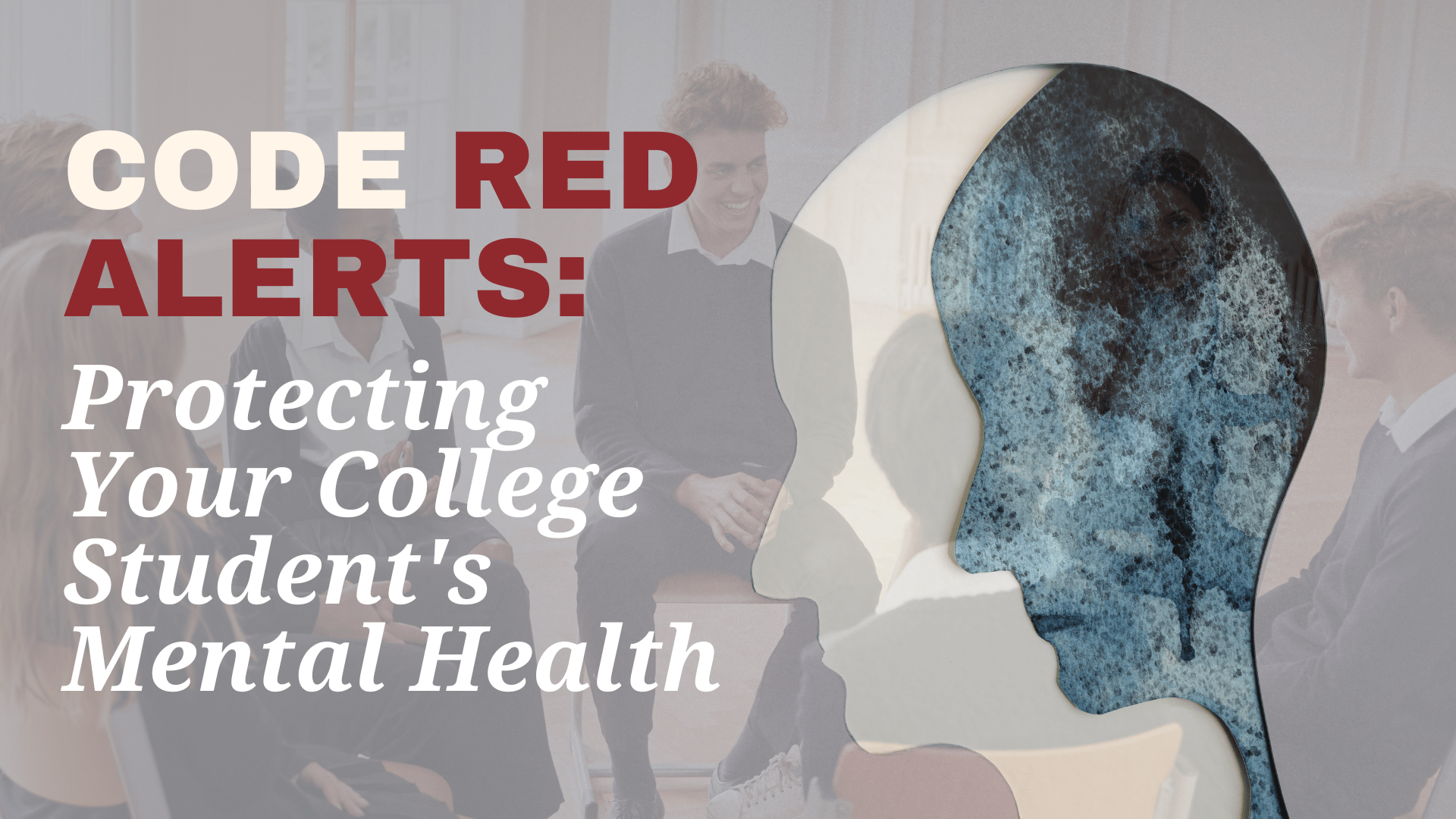Protecting Your College Student's Mental Health

The journey to college is both exciting and challenging. For my husband (Earl) and I, it marks a time of pride and concern. Amidst the hustle of packing bags and dorm room shopping, it’s crucial to recognize the significance of mental health
College life can bring unique stressors, and as parents, it's essential to be vigilant.
Recognizing the Code Red Alerts
1. Sudden Withdrawal
If your once communicative teen (as in our teen, Iman) suddenly becomes silent, pay attention. Withdrawal from social circles or family interactions can indicate emotional distress.
2. Academic Decline
Watch for unexpected drops in grades or a lack of interest in academics. While college can be challenging, a significant decline might signal underlying issues.
3. Changes in Sleep Patterns
Insomnia or excessive sleeping can be signs of emotional struggles. Both drastic changes in sleeping habits should raise concerns.
4. Loss of Interest
If your child loses interest in activities they once enjoyed, it might indicate a deeper emotional problem.
5. Increased Irritability
While mood swings are common during adolescence, a consistent pattern of irritability, anger, or frustration could signify emotional turbulence (as it did with our oldest, India).
Strategies for Parents
1. Open Dialogue
Foster a relationship where your child feels comfortable discussing their emotions. Encourage them to express their feelings without judgment.
2. Educate Yourself
Understand the mental health services available on campus. Familiarize yourself with their counseling programs and crisis hotlines.
3. Establish Trust
Ensure your child knows they can rely on you during difficult times. Establish a 'safe word' system for distress situations.
For more parenting tips and advise, subscribe to our newsletter.
Thank you for subscribing!
Have a great day!
4. Regular Check-Ins
Schedule regular video or phone calls. Observe their facial expressions and body language, which can reveal more than words.
5. Encourage Self-Care
Discuss the importance of exercise, healthy eating, and adequate sleep. Encourage them to seek hobbies and activities that bring them joy.
Reaching Out for Help
1. Counseling Services
Emphasize the availability of campus counseling services. Normalize seeking therapy for mental well-being.
2. Community Support
Encourage involvement in campus clubs or groups that focus on mental health awareness. Connecting with others who face similar challenges can be empowering.
3. Emergency Procedures
Ensure your child knows what to do in case of a mental health emergency. Familiarize them with local crisis hotlines and the campus emergency protocol.
In conclusion, the transition to college is a significant milestone, but it's essential to recognize that mental health challenges are a part of this journey.
By being vigilant, maintaining open communication, and staying informed, we can play a crucial role in ensuring their teen's emotional well-being.
Remember, it's okay to seek help, and with the right support, both parents and students can navigate this phase successfully.
Asking for help can make such a difference to our mental health and how we react to the things in our lives! Explore ways to be emotionally prepare. You are not alone. Book a on-on-one consultation with me!
